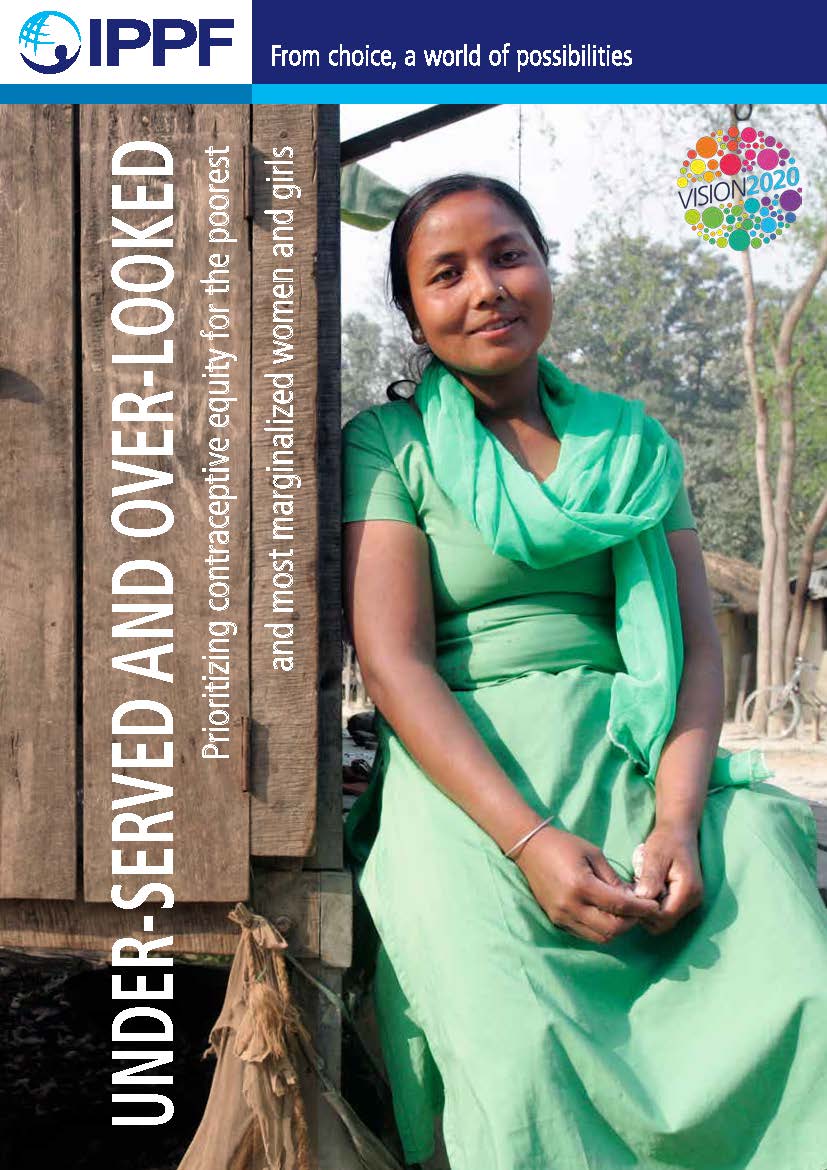Spotlight
A selection of resources from across the Federation

HIV Theory of Change
Our HIV Theory of Change is to clarify the goals and vision of IPPF’s HIV programme and to articulate the different pathways and strategies IPPF uses to contribute towards its HIV goals and vision.
Filter our resources by:


| 20 August 2017
IPPF - 2017 Gender Equality Strategy
IPPF recognizes that investing in gender equality is essential both as a means for fulfilling SRHR and as an end in itself. Sexual and reproductive health and rights will only be achieved when there is gender equality. The report is available in English, French, Spanish and Arabic.

| 11 July 2017
Under-served and Over-looked
Under-served and Over-looked is a flag in the ground. It is a decisive declaration that IPPF stands for equity. IPPF stands for human rights for all. While IPPF has long worked to scale up family planning services, to reduce unmet need and to reach vulnerable populations, with the launch of Under-served and Over-looked we are confirming that reaching the most vulnerable and hard-to-reach groups is IPPF’s top priority. This report is a synthesis of evidence revealed from a literature review, including 68 reports from 34 countries. The results are dire: the poorest women and girls, in the poorest communities of the poorest countries are still not benefitting from the global investment in family planning and the joined up actions of the global family planning movement. Women in the poorest countries who want to avoid pregnancy are one-third as likely to be using a modern method as those living in higher-income developing countries. This is not acceptable. Join IPPF campaign for universal access to contraception

| 08 May 2017
Under-served and over-looked - Executive summary
The evidence is clear: family planning saves lives. Yet, the poorest and most marginalized women and girls are being left behind during one of the most successful advances in public health in the past half century. IPPF’s report Under-served and Over-looked offers an overview of the women and girls that are being left behind and unable to access the life-saving contraception they want and need. IPPF is fighting for a world where women everywhere can say "I decide". Support our call for universal access to contraception! Add your voice
| 03 March 2017
IMAP Statement on youth peer provision models to deliver sexual and reproductive health services to young people
The purpose of this statement is to outline key components of the youth peer provision model, summarize existing evidence, and provide guidance to integrate this delivery approach into the existing sexual and reproductive health services offered by IPPF Member Associations.
| 01 February 2017
How to educate about abortion - The essentials
Abortion is an issue which people can have strong feelings about. Some consider it too ‘controversial' to include in education programmes. However, unplanned pregnancy and abortion are common occurrences around the world and IPPF believes that we all need accurate information to form our own values and make informed choices. This publication is a summary version of the peer education guide previously published.
| 13 January 2017
IMAP Statement on safeguarding reproductive rights in the face of declining fertility
Profound changes in demographic patterns are taking place globally. Birth rates are falling in most countries around the world. Many governments are concerned about the impact of population ageing, and its consequent effects on lower economic productivity and escalating costs for medical care for older people. Some argue that birth rates must be stimulated to increase again. A few have begun to question the legitimacy of contraception and parenthood by choice, as well as challenging the principle of gender equality. This concern may also result in reduced focus on ‘the other side of the story’, namely that 225 million women who wish to avoid or delay pregnancy are not using modern contraception. Such restrictive approaches contravene people’s right to “reproduce and the freedom to decide if, when and how often to do so” as agreed at the 1994 International Conference on Population and Development, and reiterated through the 2015 Sustainable Development Goals.















